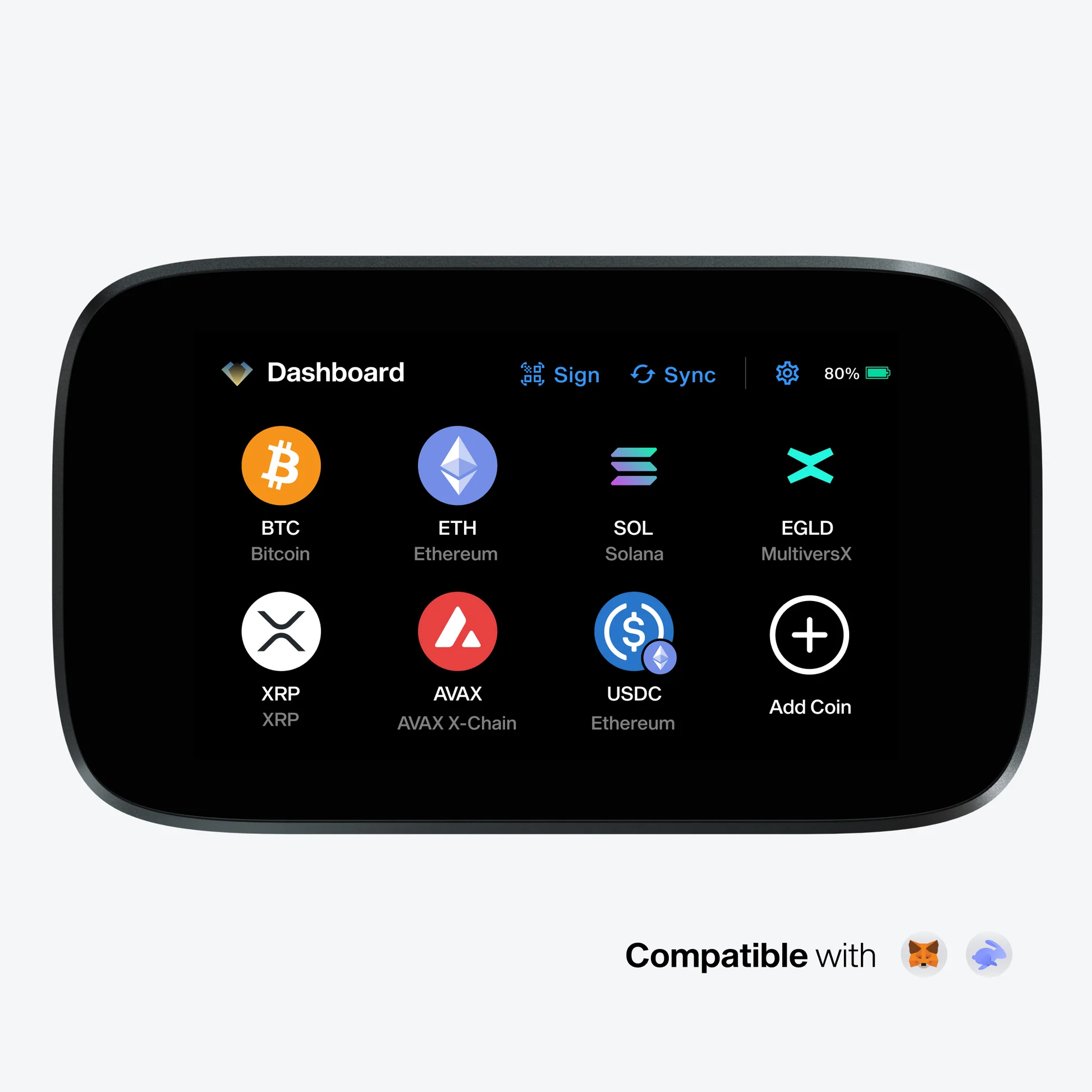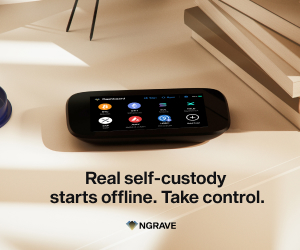In 2022 alone, centralized exchanges lost over $3.8 billion to hacks and security breaches, leaving millions of users unable to access their funds. The collapse of FTX in late 2022 reinforced a fundamental truth in the crypto world: if you don’t control your private keys, you don’t truly own your digital assets.
A private cryptocurrency wallet puts you in complete control of your crypto assets, eliminating the risks associated with storing funds on centralized exchanges.
As the world transitions from traditional money to digital assets, managing your own money securely is crucial for financial sovereignty in the crypto space.
This comprehensive guide will walk you through everything you need to know about private wallets, from understanding the basics to setting up your own secure storage solution.
What you will learn:
- How private cryptocurrency wallets differ from exchange wallets and why they’re essential for true ownership
- The main types of private wallets and their security trade-offs
- Best private wallets in 2025 with detailed comparisons and pricing
- Step-by-step setup instructions and security best practices
- How to avoid common mistakes that could compromise your assets
What is a Private Cryptocurrency Wallet?
A private cryptocurrency wallet is a digital tool that stores your private keys and gives you complete control over your digital assets.
A custodial wallet, on the other hand, is managed by a third party—such as an exchange or service provider—which means you do not have full control over your private keys or assets.
Unlike custodial wallets provided by centralized exchanges, private wallets ensure that only you have access to your funds through the principle of self custody.
The fundamental concept behind private wallets is simple: they generate and store cryptographic keys that prove ownership of your crypto assets on the blockchain.
Your wallet doesn’t actually store the coins themselves—those remain on the blockchain. Instead, it manages the private keys that allow you to access and transfer your funds.
The “Not Your Keys, Not Your Crypto” Principle
This widely-quoted phrase encapsulates the core philosophy of cryptocurrency ownership. When you store crypto on an exchange, the platform controls the private keys, making them the actual owner of your funds.
You’re essentially holding an IOU from the exchange, which can be frozen, seized, or lost if the platform fails.
Private wallets solve this problem by ensuring that only you control the keys to your digital assets. This self custody approach provides several key benefits:
Advantages of Private Wallets:
- Complete control over your funds with no third party involvement
- Protection from exchange hacks, bankruptcies, and freezes
- Enhanced security through offline storage options
- Privacy protection without KYC requirements
- Direct access to DeFi protocols and decentralized applications
Potential Drawbacks:
- Full responsibility for security and backup falls on the user
- Permanent loss of funds if private keys are lost or forgotten
- Learning curve for beginners unfamiliar with crypto security
- No customer support to recover lost access

Types of Private Cryptocurrency Wallets
Private crypto wallets come in several forms, each offering different balances of security, convenience, and functionality.
A self custody wallet is a type of wallet where you control your private keys, giving you full ownership and enhanced security over your cryptocurrency.
Understanding these options will help you choose the best crypto wallet for your specific needs.
Hardware Wallets – Maximum Security
Hardware wallets represent the gold standard for cryptocurrency security. These physical devices store your private keys offline in specialized, tamper-resistant chips, making them virtually immune to online attacks and malware.
Key Features of Hardware Wallets:
- Private keys stored offline in secure hardware
- Transaction signing occurs within the device
- Protection against computer malware and viruses
- Support for multiple cryptocurrencies and tokens
- Integration with popular software wallets for daily use
Some hardware wallets, such as Tangem Wallet, are designed in the form of a bank card, providing both security and convenience for users. Tangem Wallet is recognized as the world’s first card-based hardware wallet, setting a global standard for innovation in crypto security.
Hardware wallets store your private keys offline, creating an air gap between your funds and potential online threats.
Even when connected to a compromised computer, the private keys never leave the secure chip, ensuring your assets remain protected.
Pros:
- Maximum security for long-term storage
- Protection from online attacks and malware
- Support for thousands of cryptocurrencies
- Durable hardware designed to last years
- Backup and recovery options through seed phrases
Cons:
- Initial cost ranges from $49 to $200+
- Less convenient for frequent transactions
- Physical device can be lost, stolen, or damaged
- Learning curve for setup and operation
Software Wallets – Convenience and Accessibility
Software wallets offer a balance between security and convenience, making them popular for users who frequently interact with their crypto assets. These applications run on your computer or mobile device, providing easy access to your funds while maintaining control of your private keys.
Types of Software Wallets:
- Desktop wallets: Installed on your computer for enhanced security
- Mobile wallets: Smartphone apps for on-the-go access
- Browser extension wallets: Integrated with web browsers for DeFi interactions
Software wallets excel at providing quick access to your funds and seamless integration with decentralized applications. They’re particularly useful for activities like staking ETH, participating in DeFi protocols, or managing digital assets across multiple platforms.
Pros:
- Free to download and use
- Quick and easy access to funds
- Excellent for DeFi and Web3 interactions
- Regular updates and new features
- Support for a wide range of cryptocurrencies
Cons:
- Vulnerable to computer malware and viruses
- Hot wallet exposure to online threats
- Risk of loss if device fails without proper backup
- Dependent on device security and user practices
Paper Wallets and Cold Storage
Paper wallets represent the most basic form of cold storage, involving the physical printing or writing down of private keys and public addresses.
While offering excellent protection from online threats, they require careful handling and storage to prevent physical damage or loss.
Security Considerations for Paper Wallets:
- Complete immunity to online attacks and hacking
- No electronic components that can fail
- Extremely low cost to create and maintain
- Risk of physical damage from fire, water, or deterioration
- Potential for human error during creation or use
Key Security Features of Private Wallets
Modern private cryptocurrency wallets incorporate multiple layers of security to protect your digital assets.
Some wallets use end-to-end encryption to ensure that only the user can access their private keys and sensitive data, providing an extra layer of protection against hacking or theft.
Understanding these features helps you make informed decisions about wallet selection and configuration.
Private Key Generation and Management
Private keys form the foundation of cryptocurrency security. These mathematically generated strings prove ownership of your digital assets and authorize transactions on the blockchain.
Quality wallets use secure random number generators to create keys with sufficient entropy, making them virtually impossible to guess or duplicate.
The relationship between private keys and public addresses follows established cryptographic principles.
Your wallet generates a private key, derives a public key from it, and then creates a blockchain address where others can send funds.
This one-way mathematical relationship ensures that knowing someone’s public address doesn’t reveal their private key.
Seed Phrase Backup Systems
Most modern wallets implement hierarchical deterministic (HD) wallet standards, using a seed phrase of 12 to 24 words to generate all your private keys.
This backup system allows you to recover your entire wallet on any compatible device, providing a crucial safety net against device loss or failure.
Seed Phrase Security Best Practices:
- Write down your seed phrase on paper, never store it digitally
- Verify the backup by testing wallet recovery with small amounts
- Store multiple copies in secure, separate locations
- Never share your seed phrase with anyone
- Use only official wallet software to avoid phishing attempts
Multi-Signature and Enhanced Security
Advanced users can implement multi-signature (multisig) wallets that require multiple private keys to authorize transactions.
This approach distributes risk across multiple devices or people, providing enhanced security for large holdings or organizational use.
Private keys are secured within the wallet and never leave the device, further protecting user assets.
Biometric authentication and hardware security modules add additional layers of protection, ensuring that even if someone gains physical access to your device, they cannot access your funds without proper authentication.
Best Private Cryptocurrency Wallets in 2025
The cryptocurrency wallet market offers numerous options, each with unique strengths and target audiences. Here are the top recommendations across different categories:
Exodus is a popular choice for beginners, offering a user-friendly interface, support for multiple assets, an in-built exchange, and responsive customer support. Its ease of use and broad asset compatibility make it ideal for those new to cryptocurrency.
Hardware Wallets
| Wallet | Price | Supported Assets | Key Features |
|---|---|---|---|
| Ledger Nano S Plus | $79 | 5,500+ | Large screen, extensive crypto support, Ledger Live app |
| Trezor One | $49 | 1,000+ | Budget-friendly, open-source, established reputation |
| Tangem Wallet | $45-65 | 1,000+ | Card format, no seed phrase, 25-year durability |
Ledger Hardware Wallets dominate the market with over 6 million devices sold worldwide. The Ledger Nano S Plus offers excellent value with support for over 5,500 cryptocurrencies and tokens. Its secure chip architecture and regular firmware updates make it a reliable choice for long-term storage.
Trezor One provides an affordable entry point into hardware wallet security. Despite its lower price, it maintains high security standards and supports over 1,000 cryptocurrencies. The open-source firmware allows for community auditing and transparency.
Tangem Wallet introduces innovative card-based technology that eliminates the need for seed phrases. Each card contains a secure chip that generates and stores private keys offline, with enhanced security certification (EAL6+) typically reserved for banking applications.
Software Wallets
MetaMask leads the browser extension wallet category, with over 30 million monthly active users. It excels at Ethereum ecosystem interactions, DeFi protocol access, and NFT management. The wallet seamlessly integrates with thousands of decentralized applications while maintaining user control of private keys.
Phantom Wallet serves as the primary gateway to the Solana ecosystem, supporting Solana, Ethereum, and Polygon networks. Its clean interface and built-in swap functionality make it popular among DeFi users and NFT collectors.
Atomic Wallet offers comprehensive portfolio management with support for over 1,000 cryptocurrencies. Built-in exchange services, staking capabilities with 5-20% APR rates, and cross-platform compatibility make it suitable for users managing diverse crypto portfolios.
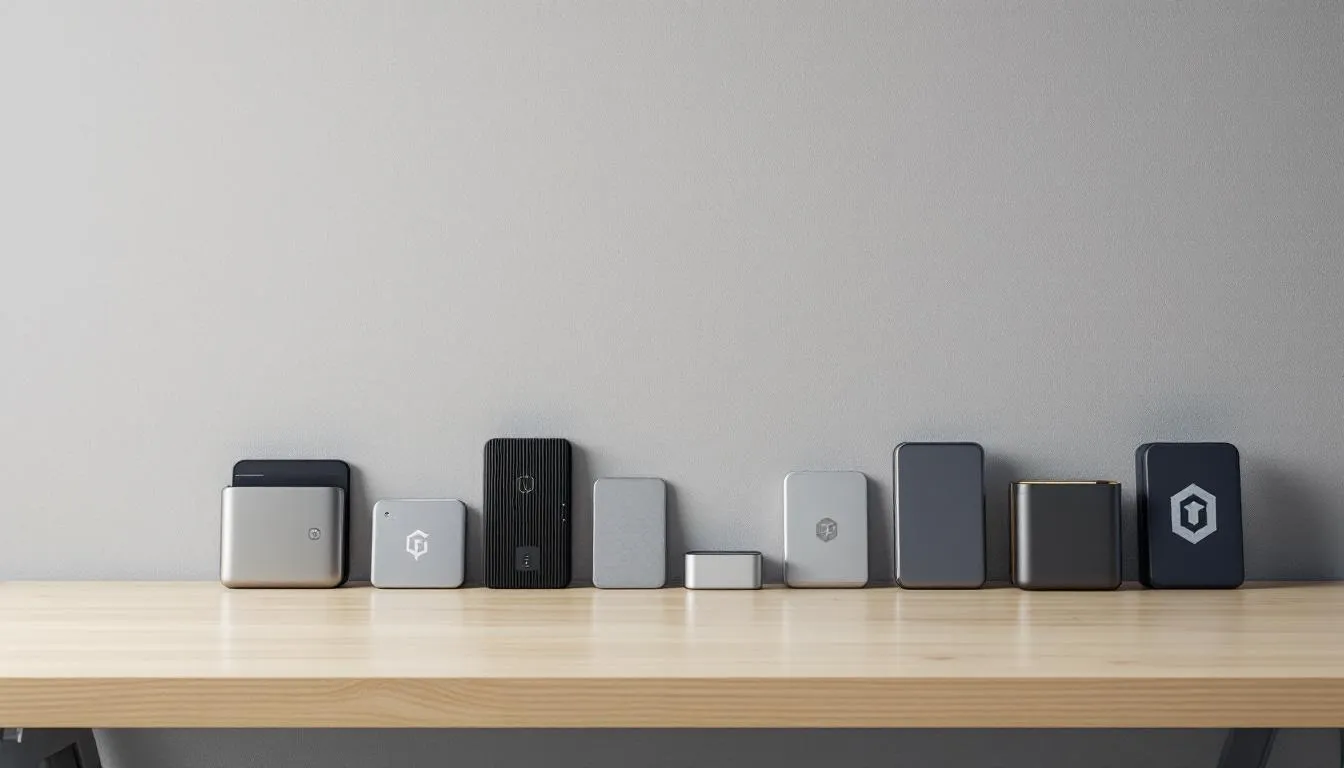
How to Choose the Right Private Wallet
Selecting the appropriate private cryptocurrency wallet depends on your specific needs, technical expertise, and security requirements.
Compared to other wallets on the market, the recommended wallets offer enhanced security features and improved usability, making them a superior choice for many users. Consider these key factors when making your decision:
Security vs Convenience Analysis
The fundamental trade-off in wallet selection lies between maximum security and daily usability. Hardware wallets provide superior protection for long-term storage but require additional steps for each transaction.
Software wallets offer convenience for frequent trading and DeFi interactions but expose your keys to online risks.
For Long-Term Storage (HODL Strategy):
- Hardware wallets like Ledger or Trezor
- Cold wallets for maximum security
- Minimal transaction frequency
- Focus on backup and recovery planning
For Active Trading and DeFi:
- Software wallets like MetaMask or Phantom
- Hot wallet convenience for quick transactions
- Integration with decentralized exchanges
- Regular interaction with smart contracts
Blockchain Network Compatibility
Different wallets support different blockchain networks and cryptocurrencies. Ensure your chosen wallet supports all the digital assets you plan to store:
- Multi-chain wallets: Support Bitcoin, Ethereum, and other major networks
- Specialized wallets: Optimized for specific blockchains (e.g., Phantom for Solana)
- Token standards: ERC-20, BEP-20, and other token formats
- Layer 2 solutions: Polygon, Arbitrum, and scaling networks
Budget Considerations
Wallet costs vary significantly based on features and security levels:
- Free software wallets: MetaMask, Phantom, Trust Wallet
- Budget hardware wallets: Trezor One ($49), Tangem cards ($45-65)
- Premium hardware wallets: Ledger Nano X ($149), Trezor Safe 5 ($219)
- Enterprise solutions: Multi-signature setups and institutional custody
Setting Up Your Private Cryptocurrency Wallet
Proper wallet setup forms the foundation of your cryptocurrency security. Follow these detailed steps to ensure secure installation and configuration.
Please note that private wallets do not provide crypto transaction services directly; to execute transactions, you must use external platforms or third-party providers.
If you encounter access issues or are blocked when visiting a wallet provider’s website, you may see a ‘ray id’ displayed by Cloudflare. This unique identifier can be provided to support to help diagnose and resolve the problem.
Hardware Wallet Setup Process
- Purchase from Official Sources: Only buy hardware wallets directly from manufacturers or authorized retailers to avoid tampered devices.
- Initial Device Setup:
- Connect the device to your computer
- Install official wallet software (Ledger Live, Trezor Suite)
- Complete the verification successful waiting process for firmware authentication
- Generate a new seed phrase (never use a pre-generated one)
- Seed Phrase Backup:
- Write down your 12-24 word recovery phrase on paper
- Verify each word carefully during the backup process
- Store the backup in a secure, fireproof location
- Test recovery with a small amount before proceeding with large transfers
- Security Configuration:
- Set a strong PIN code for device access
- Enable additional security features like passphrases
- Update firmware to the latest version
- Install apps for your chosen cryptocurrencies
Software Wallet Installation
Software wallet setup requires attention to security from the moment of download:
- Download from Official Sources: Always use official websites or app stores to avoid malicious software that could compromise your private keys.
- Wallet Creation Process:
- Generate a new wallet rather than importing existing keys initially
- Create a strong, unique password for wallet access
- Backup your seed phrase immediately after creation
- Enable all available security features
- Security Hardening:
- Enable two-factor authentication if available
- Configure automatic security updates
- Review and adjust privacy settings
- Test wallet functionality with small amounts
Initial Funding and Testing
Before transferring significant amounts to your new private wallet, conduct thorough testing:
- Small Test Transactions: Send a minimal amount (equivalent to $10-20) to verify everything works correctly
- Address Verification: Double-check wallet addresses before sending larger amounts
- Recovery Testing: Practice wallet recovery using your backup seed phrase
- Security Review: Ensure all security features are properly configured
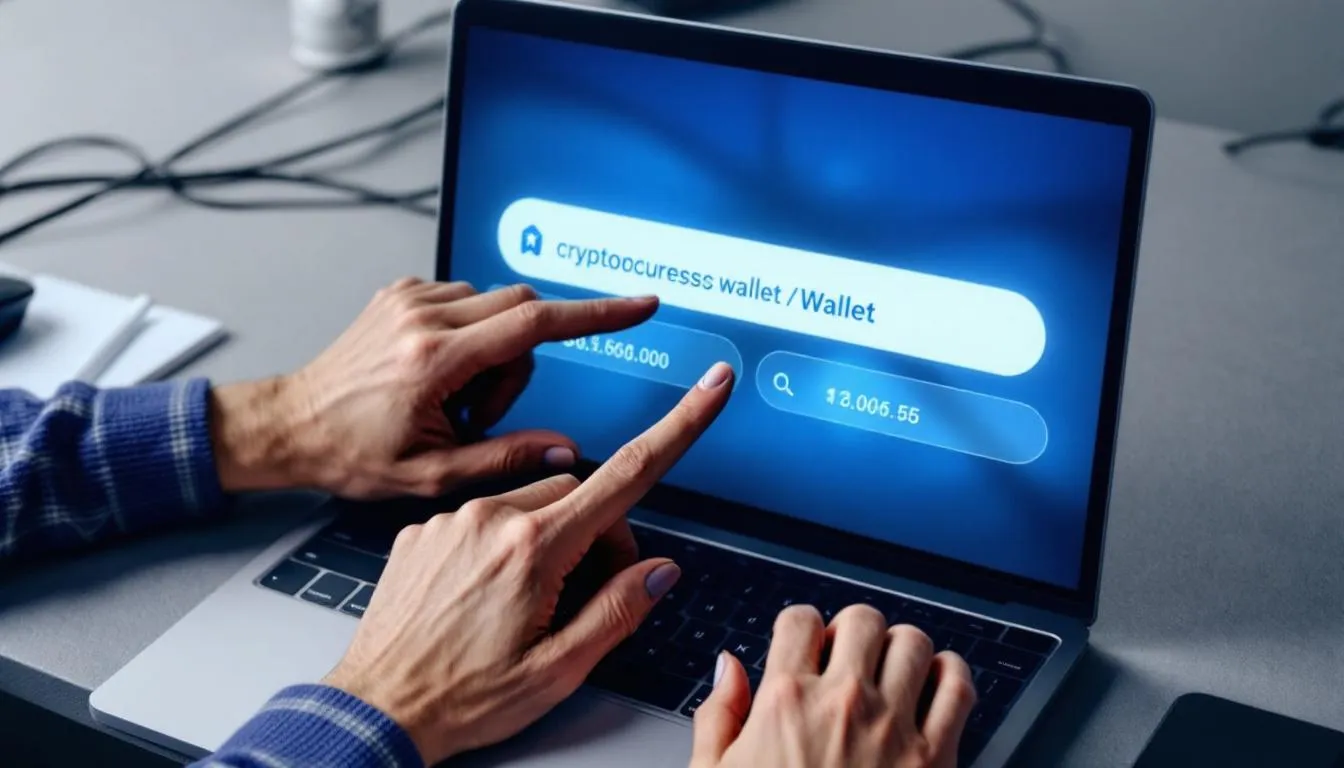
Private Wallet Security Best Practices
Maintaining the security of your private cryptocurrency wallet requires ongoing vigilance and adherence to established best practices. While private wallets offer strong security, users may need to interact with third party providers for certain crypto-related services and should carefully vet these providers before use. These guidelines will help protect your digital assets from common threats:
Seed Phrase Protection Strategies
Your seed phrase represents the master key to your cryptocurrency holdings. Protecting it requires multiple layers of security:
Physical Storage Methods:
- Write seed phrases on paper using pencil or archival ink
- Store copies in multiple secure locations (safe deposit boxes, home safes)
- Consider metal backup plates for fire and water resistance
- Never store seed phrases digitally or take photos of them
Access Control:
- Limit knowledge of storage locations to trusted family members
- Use sealed envelopes or tamper-evident storage methods
- Implement dead man’s switches for inheritance planning
- Regularly check backup integrity and accessibility
Recognizing and Avoiding Threats
The cryptocurrency space attracts sophisticated scammers and hackers. Stay vigilant against these common attack vectors:
Phishing Protection:
- Always type wallet URLs directly rather than clicking links
- Verify website SSL certificates and domain spelling
- Be suspicious of urgent emails claiming account problems
- Never enter seed phrases on websites or respond to support requests
Malware Prevention:
- Keep operating systems and software updated
- Use reputable antivirus software
- Avoid downloading crypto-related software from unofficial sources
- Consider using dedicated computers for high-value crypto transactions
Regular Security Maintenance
Cryptocurrency security requires ongoing attention and periodic reviews:
- Software Updates: Install wallet updates promptly to patch security vulnerabilities
- Hardware Maintenance: Keep hardware wallets firmware current and check for physical damage
- Backup Verification: Periodically test wallet recovery processes with small amounts
- Security Audits: Review access controls and backup storage locations quarterly
Common Mistakes to Avoid
Learning from others’ mistakes can save you from costly errors. Here are the most frequent pitfalls that lead to lost crypto assets:
Critical Security Errors
Storing Sensitive Information Digitally: Many users lose access to their funds by storing seed phrases in cloud storage, password managers, or digital photos. These digital copies become targets for hackers and can be compromised through data breaches.
Using Suspicious Websites: Phishing sites that mimic legitimate wallet providers trick users into entering their seed phrases or private keys. Always verify you’re on the correct website by typing URLs directly into your browser.
Sharing Private Information: Never share your private keys, seed phrases, or passwords with anyone. Legitimate support teams will never ask for this information, and sharing it gives others complete control over your funds.
Operational Mistakes
Skipping Address Verification: Failing to double-check wallet addresses before sending transactions has resulted in millions of dollars in lost cryptocurrency. Always verify addresses character by character, especially for large transfers.
Inadequate Testing: Many users transfer large amounts to new wallets without proper testing. Start with small amounts to verify everything works correctly before proceeding with significant transfers.
Poor Backup Practices: Not testing wallet recovery processes or storing incomplete backup information can result in permanent loss of access. Regularly verify that your backups are complete and functional.
Recovery Planning Failures
Single Point of Failure: Storing all backup materials in one location creates unnecessary risk. Distribute backups across multiple secure locations to protect against theft, fire, or natural disasters.
Lack of Inheritance Planning: Many cryptocurrency holders fail to provide family members with access instructions for emergency situations. Consider sharing backup locations (but not the actual phrases) with trusted family members.
Private Wallet Features and Functionality
Modern private cryptocurrency wallets offer sophisticated features that extend far beyond basic storage and transactions. For example, Ledger is the world’s most popular hardware wallet, known for its robust security and wide adoption. Understanding these capabilities helps you maximize the value of your digital assets:
Portfolio Management and Tracking
Advanced private wallets provide comprehensive portfolio management tools that help you monitor your investments across multiple blockchain networks:
Multi-Asset Support: Leading wallets support thousands of cryptocurrencies and tokens, allowing you to manage diverse portfolios from a single interface. This eliminates the need to juggle multiple wallets for different assets.
Real-Time Price Tracking: Built-in price feeds provide current market values for your holdings, calculating total portfolio worth and tracking performance over time.
Transaction History: Detailed records of all wallet activity help with tax reporting and portfolio analysis. Many wallets export transaction data in formats compatible with accounting software.
Built-In Exchange and Swap Services
Modern wallets increasingly integrate exchange functionality, allowing users to trade crypto assets without leaving the secure environment of their private wallet:
Decentralized Exchange Integration: Wallets like MetaMask connect directly to DEX protocols, enabling token swaps while maintaining control of your private keys throughout the process.
Cross-Chain Bridges: Advanced wallets facilitate transfers between different blockchain networks, expanding your ability to access various DeFi protocols and services.
Rate Comparison: Some wallets compare rates across multiple exchange services to help you get the best prices for your trades.
Staking and Passive Income Opportunities
Private wallets enable direct participation in blockchain consensus mechanisms and earning opportunities:
Native Staking: Many wallets support direct staking for proof-of-stake cryptocurrencies, allowing you to earn rewards while maintaining control of your assets. Staking ETH through private wallets typically offers 3-5% annual returns.
DeFi Protocol Access: Browser extension wallets like MetaMask provide seamless access to lending protocols, yield farming opportunities, and liquidity mining programs with potential returns of 5-20% APR.
Governance Participation: Private wallets enable voting on governance proposals for decentralized protocols, giving you a voice in the future development of projects you support.
NFT Storage and Management
The growing popularity of non-fungible tokens (NFTs) has led to enhanced support in private cryptocurrency wallets:
NFT Galleries: Modern wallets display your NFT collections with rich media support, showing artwork, metadata, and collection information.
Marketplace Integration: Direct connections to NFT marketplaces enable buying, selling, and trading without exposing your private keys to third-party platforms.
Cross-Platform Compatibility: Your NFTs remain accessible across different wallet applications and platforms, ensuring long-term accessibility regardless of specific wallet choice.
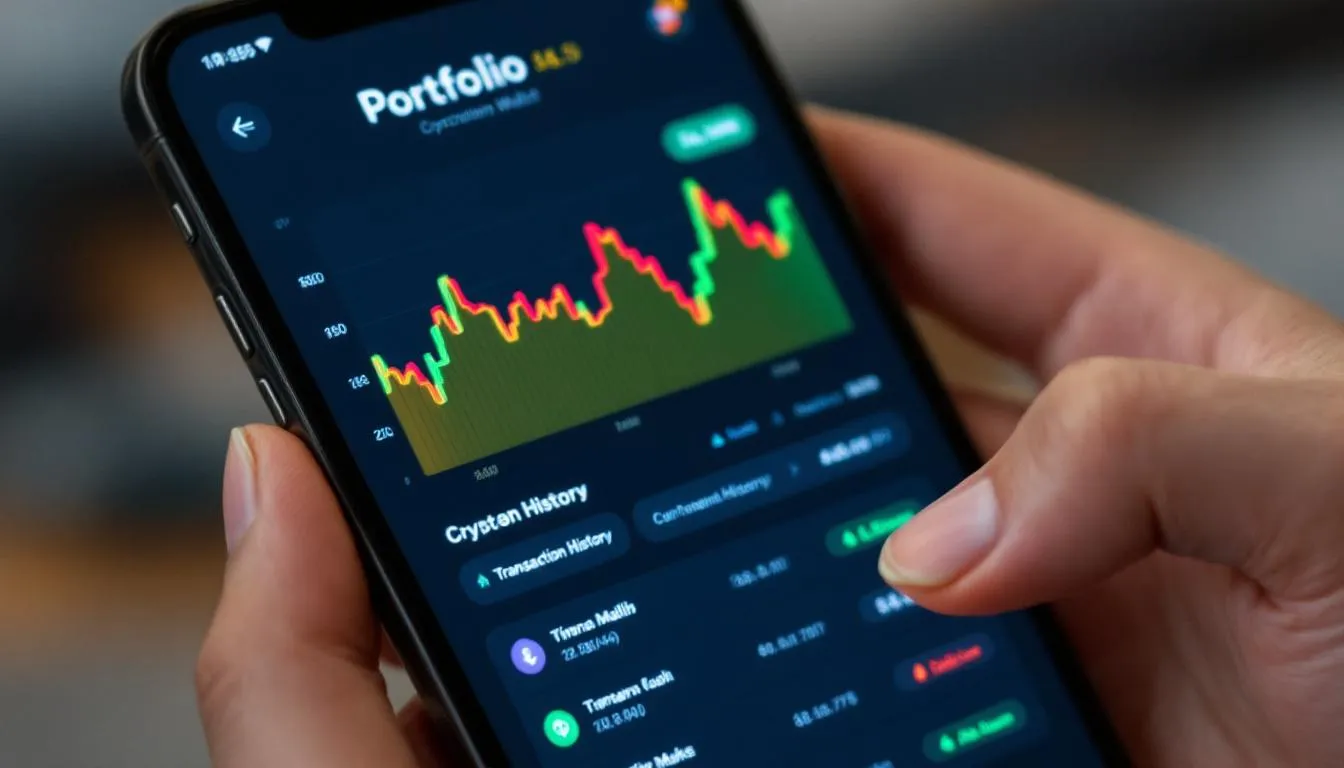
Pros and Cons of Private Cryptocurrency Wallets
Understanding the complete picture of private wallet ownership helps you make informed decisions about your cryptocurrency security strategy:
Advantages of Self-Custody Solutions
Complete Asset Control: Private wallets give you exclusive ownership of your digital assets without relying on third party services. This eliminates counterparty risk associated with centralized exchanges and custodial services.
Enhanced Security Through Isolation: Self custody wallets, particularly hardware solutions, isolate your private keys from internet-connected devices. This air-gapped securitysignificantly reduces exposure to online attacks and malware.
Privacy Protection: Private wallets don’t require personal identification or bank account linking, preserving your financial privacy. Your transactions remain pseudonymous on the blockchain, with only you controlling the connection between your identity and your wallet addresses.
Access to Full Cryptocurrency Ecosystem: Private wallets enable direct interaction with decentralized finance protocols, NFT marketplaces, and emerging blockchain applications without requiring approval from centralized platforms.
No Geographic Restrictions: Unlike bank-based services that may restrict access based on location, private wallets provide global access to your funds regardless of where you are in the world.
Disadvantages and Challenges
User Responsibility Burden: The security of your assets depends entirely on your actions and decisions. Lost private keys or forgotten passwords result in permanent, irrecoverable loss of funds with no customer service to help.
Learning Curve Requirements: Effective use of private wallets requires understanding of cryptocurrency fundamentals, security practices, and technical concepts that may intimidate newcomers to the space.
Cost Considerations: Hardware wallets require upfront investment, with quality devices ranging from $49 to $200+. Software wallets are free but may require additional security investments like dedicated devices.
Limited Recovery Options: Unlike traditional bank accounts, there’s no password reset mechanism or customer support to help recover lost access. This finality requires careful planning and backup strategies.
Technical Complexity: Advanced features like multi-signature setups, hardware wallet integration, and DeFi interactions require technical knowledge that may overwhelm casual users.
Cost-Benefit Analysis
| Factor | Private Wallets | Exchange Wallets |
|---|---|---|
| Security | High (user-dependent) | Medium (platform-dependent) |
| Control | Complete | Limited |
| Recovery Options | Self-managed | Platform-assisted |
| Costs | Hardware: $49-200+, Software: Free | Usually free |
| Learning Curve | Moderate to high | Low |
| Feature Access | Full ecosystem | Platform-limited |
| Privacy | High | Low (KYC required) |
Recovery and Backup Strategies
Effective backup and recovery planning forms the cornerstone of successful private wallet management. Without proper preparation, even the most secure wallet becomes worthless if access is lost:
Comprehensive Backup Planning
Multiple Storage Locations: Distribute backup materials across geographically diverse, secure locations. Consider using bank safe deposit boxes, home safes, and trusted family member locations to ensure accessibility even if one location becomes compromised or inaccessible.
Redundant Backup Methods: Create multiple copies of your seed phrase using different storage media. Paper backups provide simplicity and longevity, while metal plates offer superior resistance to fire and water damage.
Verification Protocols: Regularly test your backup materials by attempting wallet recovery with small amounts. This practice ensures your backups remain legible and complete over time.
Advanced Recovery Techniques
Multi-Signature Recovery: Advanced users can implement multi-signature wallets that require multiple keys for access. This approach distributes recovery responsibility across multiple devices or trusted individuals.
Social Recovery Systems: Emerging smart contract wallets enable social recovery mechanisms where trusted contacts can help restore access without compromising security during normal operations.
Time-Locked Recovery: Some advanced wallet systems implement time delays for recovery operations, providing additional security against unauthorized access attempts while maintaining recovery options.
Inheritance and Emergency Planning
Family Emergency Access: Develop clear protocols for family members to access your cryptocurrency holdings in emergency situations. This planning should include backup location information without exposing the actual recovery phrases.
Legal Documentation: Consider including cryptocurrency holdings in estate planning documents, providing clear instructions for beneficiaries while maintaining security during your lifetime.
Regular Plan Updates: Review and update recovery plans annually or whenever significant changes occur in your holdings, family situation, or security setup.
Tangem’s Innovative Backup System
Tangem wallet cards introduce a revolutionary approach to backup and recovery that eliminates traditional seed phrases entirely:
Seedless Security: Each Tangem card contains a secure chip that generates and stores private keys without ever revealing them as words or text. This approach eliminates the risk of seed phrase theft or loss.
Card-Based Redundancy: Tangem offers sets of 2-3 cards that share the same wallet, providing built-in backup without requiring separate storage of recovery phrases.
25-Year Durability: The card format provides exceptional physical durability with an estimated 25-year lifespan, significantly outlasting typical paper or digital storage methods.
Future of Private Cryptocurrency Wallets
The cryptocurrency wallet landscape continues evolving rapidly, driven by technological advances, user experience improvements, and expanding blockchain ecosystems:
Emerging Hardware Technologies
Wearable Wallet Devices: Companies are developing cryptocurrency wallets integrated into rings, watches, and other wearable devices. These form factors provide constant access while maintaining security through biometric authentication and secure element chips.
Smartphone Integration: Advanced mobile devices increasingly include dedicated secure enclaves designed for cryptocurrency key storage. This integration promises to bring hardware-level security to everyday devices without requiring separate hardware purchases.
Quantum-Resistant Security: As quantum computing advances, wallet developers are implementing post-quantum cryptographic algorithms to protect against future computational threats that could compromise current encryption methods.
Enhanced User Experience
Simplified Onboarding: New wallet designs focus on reducing the complexity barrier that prevents mainstream adoption. Guided setup processes, automatic backup verification, and simplified security concepts make private wallets accessible to broader audiences.
Cross-Platform Synchronization: Advanced wallets are developing secure synchronization methods that allow seamless access across multiple devices while maintaining private key security and user control.
AI-Assisted Security: Machine learning algorithms help detect suspicious transaction patterns, phishing attempts, and potential security threats, providing users with intelligent security assistance.
Integration with Traditional Finance
Banking Integration: Private wallets are beginning to integrate with traditional banking services, enabling direct bank transfers and traditional payment method connections while maintaining cryptocurrency self-custody.
Regulatory Compliance Tools: As regulations evolve, wallets are incorporating built-in compliance features that help users meet reporting requirements without compromising privacy or security.
Insurance Integration: Some wallet providers are partnering with insurance companies to offer coverage for specific types of losses, bridging the gap between traditional financial protections and cryptocurrency self-custody.
Multi-Chain and Interoperability Advances
Universal Wallet Standards: Industry initiatives are working toward wallet standards that enable seamless interaction across different blockchain networks and protocols.
Layer 2 Optimization: Wallets are optimizing for blockchain scaling solutions, providing users with faster, cheaper transactions while maintaining security and decentralization benefits.
DeFi Evolution: As decentralized finance continues growing, wallets are becoming more sophisticated DeFi interaction platforms, offering advanced features like yield optimization, risk assessment, and portfolio rebalancing.

Conclusion
Private cryptocurrency wallets represent the foundation of true digital asset ownership, providing security, control, and access that centralized alternatives simply cannot match.
While the responsibility of self custody requires learning and careful planning, the benefits far outweigh the challenges for anyone serious about cryptocurrency investment and participation in the decentralized economy.
The key to successful private wallet use lies in understanding your specific needs and choosing appropriate tools for your situation.
Whether you prioritize maximum security through hardware wallets, convenience through software solutions, or innovation through emerging technologies like Ellipal X cards, options exist for every user profile and budget.
Remember that cryptocurrency security is not a destination but an ongoing journey. Regular updates to your security practices, backup verification, and staying informed about emerging threats will help ensure your digital assets remain secure for years to come.
The future of private cryptocurrency wallets looks increasingly bright, with advancing technology making secure self-custody more accessible while expanding the possibilities for what you can do with your digital assets.
As the ecosystem continues maturing, private wallets will become even more powerful tools for financial sovereignty and participation in the decentralized economy.
Start securing your digital assets today by choosing the right private wallet for your needs. Whether you begin with a budget-friendly Trezor One at $49 or invest in a premium Ledger solution, taking control of your private keys is the first step toward true cryptocurrency ownership and financial independence.
Ready to take control of your crypto security? Explore the recommended wallets in this guide and begin your journey toward secure, private cryptocurrency storage. Remember: not your keys, not your crypto—but with the right private wallet setup, those keys and that crypto are definitively yours.
Community and Support
The community and support ecosystem surrounding crypto wallets is vast and diverse, offering users a wide range of resources to enhance their understanding and management of digital assets.
Whether you’re a novice or an experienced user, accessing official resources and documentation, engaging with user communities and forums, and leveraging customer support and troubleshooting services are essential for navigating the world of crypto wallets effectively.
Accessing Official Resources and Documentation
Official resources and documentation provided by leading wallet providers—such as Tangem Wallet, Ledger, and others—are essential tools for anyone looking to maximize the security and functionality of their crypto wallets.
These resources typically include step-by-step guides for setting up your wallet, managing private keys, and utilizing advanced features like staking ETH or swapping tokens.
For example, Tangem Wallet’s documentation offers clear instructions on how to generate and store private keys offline, ensuring your digital assets are protected from online attacks and hacking attempts.
Similarly, Ledger’s extensive knowledge base covers everything from initial setup to advanced crypto security practices, helping users store their assets with enhanced security.
By regularly consulting these official resources, you can stay informed about the latest wallet updates, security enhancements, and best practices for safeguarding your crypto assets—ensuring your wallet remains a secure vault for your digital wealth.
User Communities and Forums
User communities and forums dedicated to crypto wallets are invaluable for both new and seasoned users. These vibrant spaces—such as Reddit’s r/CryptoWallet, Telegram groups, and Discord servers—allow you to connect with other crypto enthusiasts, share experiences, and seek advice on everything from choosing the best crypto wallet to implementing cold wallets for maximum security.
Community members often discuss strategies for self custody, tips for protecting private keys, and solutions for common issues like losing access to a wallet or recovering from a compromised device. These forums are also a great way to stay updated on wallet security news, software updates, and emerging threats in the crypto world.
By participating in these communities, you gain access to collective knowledge and real-world experiences, helping you securely manage your crypto assets and avoid common pitfalls.
Customer Support and Troubleshooting
Reliable customer support and troubleshooting services are crucial for maintaining the security and accessibility of your crypto wallet. Leading providers like Ledger and Tangem offer dedicated support channels—including live chat, email, and phone assistance—to help users resolve issues quickly and securely.
Whether you need help with verifying successful waiting times for transactions, troubleshooting connection problems, or addressing concerns about compromised private keys, responsive support teams are there to guide you. S
ome wallet providers also collaborate with third party services to offer enhanced recovery options, ensuring that even if you lose access to your hardware wallet or private keys, your digital assets remain protected.
By utilizing these support resources, you can confidently manage your crypto assets, knowing that expert help is available whenever you need it—whether you’re securing your first wallet or managing a diverse portfolio across multiple devices.
If you are blocked from accessing a wallet provider’s website, you may see a ‘ray id’ displayed by Cloudflare; providing this ray id to support staff can help them diagnose and resolve the issue more efficiently.
Introduction to Digital Assets
Digital assets have rapidly transformed the financial landscape, offering new ways to store, transfer, and invest value across the globe. As cryptocurrencies and tokens become more mainstream, the need for secure and reliable storage solutions has never been greater.
A crypto wallet is an essential tool for anyone looking to participate in the world of digital assets, enabling users to store, send, and receive their holdings with confidence.
Whether you’re managing a diverse portfolio of tokens or simply making your first crypto transaction, the right wallet provides the foundation for secure and efficient asset management.
In this section, we’ll explore what digital assets are, why they matter, and how security plays a crucial role in every crypto transaction. Understanding these fundamentals will help you choose the best crypto wallet for your needs and ensure your assets remain protected in an increasingly digital world.
What Are Digital Assets?
Digital assets are virtual forms of value, such as cryptocurrencies and tokens, that leverage cryptography to secure transactions and ownership.
Unlike traditional money, digital assets are decentralized—meaning they operate independently of governments or financial institutions. This decentralization allows for greater transparency, lower transaction costs, and global accessibility.
People use digital assets for a variety of purposes, including online purchases, investments, and transferring money across borders.
As the ecosystem grows, so does the need for effective tools to manage these assets. The best crypto wallet for managing digital assets combines enhanced security, user-friendly design, and compatibility with multiple platforms, making it easier to store, send, and receive tokens securely.
By choosing a wallet that prioritizes security and usability, you can confidently participate in the decentralized world of crypto transactions.
Why Security Matters in Crypto
Security is at the heart of every successful crypto experience. Because digital assets are stored and transferred electronically, they are prime targets for hackers and online attacks.
Crypto transaction services, especially those offered by third party providers, require robust protection of private keys—the cryptographic codes that grant access to your funds.
Hardware wallets, such as the Tangem wallet, are designed to store private keys offline, shielding them from internet-based threats and providing an extra layer of defense against hacking attempts.
By keeping your private keys offline, you significantly reduce the risk of unauthorized access. Self-custody wallets empower you to control your own keys, ensuring that only you can authorize transactions and manage your digital assets.
Using a secure crypto wallet is the most effective way to protect your assets from theft, loss, or compromise. Whether you’re storing a small amount of crypto or managing a large portfolio, prioritizing security—through hardware wallets, private keys offline, and careful selection of wallet providers—will help you maintain full control over your assets and safeguard your financial future.
Custodial Wallet Risks
While custodial wallets offer convenience, they also introduce significant risks to the security of your digital assets. When you use a custodial wallet, you’re entrusting a third party to store your private keys and manage access to your funds.
This arrangement can leave your assets vulnerable to hacking, mismanagement, or even loss if the provider is compromised.
Understanding the risks associated with custodial wallets is essential for anyone serious about crypto security. By comparing custodial and non-custodial solutions, you can make informed decisions about how to best store and protect your private keys and digital assets.
How Custodial Wallets Work
Custodial wallets, often referred to as hosted wallets, operate by storing users’ private keys on centralized servers managed by the wallet provider. This means that the provider—not the user—has ultimate control over the keys that unlock access to digital assets.
While this setup can simplify the user experience and offer features like password recovery, it also creates a single point of failure.
If a custodial wallet provider is hacked or experiences a security breach, users may lose access to their funds, as the private keys could be stolen or compromised.
In some cases, users have lost their assets permanently due to provider insolvency or mismanagement. In contrast, hardware wallets store private keys offline, giving users full control and significantly reducing the risk of unauthorized access.
By choosing a non-custodial wallet—where only you have access to your private keys—you ensure that your digital assets remain secure and under your control.
Hardware wallets and other self-custody solutions empower you to store your private keys offline, protect your assets from hacking, and avoid the pitfalls of centralized storage.
Ultimately, taking control of your keys is the most effective way to secure your crypto assets and maintain true ownership in the digital world.


